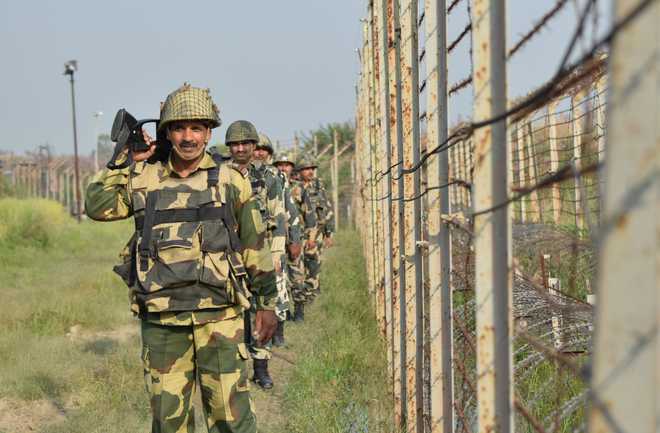
PS Randhawa
I wonder where the soldier has gone whom I saw in my childhood? In the school in my village, in the 1960s and ’70s, our classroom walls adorned huge posters of Subedar Joginder Singh, Major Somnath Sharma, Major Dhan Singh Thapa and other Param Vir Chakra awardees. That was the time when the wars of 1962, 1965 and 1971 had been fought. Our village soldiers who returned from the front narrated numerous tales of bravery. Hav Karam Singh, who was in the artillery and had a penchant for writing Punjabi poems, would recite them at the village gurdwara — Kadh-kadh topan chaldiyan (guns go blazing boom boom). A soldier coming on leave was revered and held in very high esteem. In any congregation, he was offered a place of pride. Old soldiers were part of village folklore.
Our language books had poems eulogising the bravery of soldiers. I still remember a poem, ‘Wagan chhad de hanjhuan waliye ne pair dharan de mainu raqab utte, mere desh te bani e bheed bhaari tut paye ne wairy Punjab utte’ (O my bride with tearful looks, allow me to leave for war as the enemy has attacked my country and Punjab front has got activated). A number of stories of war heros were part of textbooks. Ballads of war and poems about soldiers featured predominantly in the Saturday Bal Sabha. No school function was complete without one or two items praising the soldiers and the Army.
A soldier formed an important part of Punjab’s culture. A number of folk songs sung by women on weddings were about longings of brides for the soldier gone to war; a sample: ‘Pehli gaddi aave mera Hauldar ve” (May my Havildar come back in the first available train). Songs played on All India Radio such as, ‘Mahi ve lai ke chhuttian mahine dian aa” (O my beloved come home on leave for a month) and ‘Mahi aave jang jit ke, te main randion suhagan hovan’ (May my beloved come back after winning the war and I may become a bride again) are still fresh in my memory.
Soldiering was the most revered profession in Punjab. Almost all the sportsmen of national and international fame were from the Army. Be it hockey, athletics, boxing, wrestling or any other sport; almost all were predominantly represented by soldiers. Most of the players preferred to join the Army.
But now everything has changed. Heroes are synonymous only with films. A soldier does not find a place in Punjabi culture. Folk songs eulogising him are long forgotten. One hardly finds a chapter on brave soldiers in any textbook. Sportsmen do not join the Army. Veterans do not find a respectable place even in village meetings due to politics.
That soldier of my childhood days is lost.



























